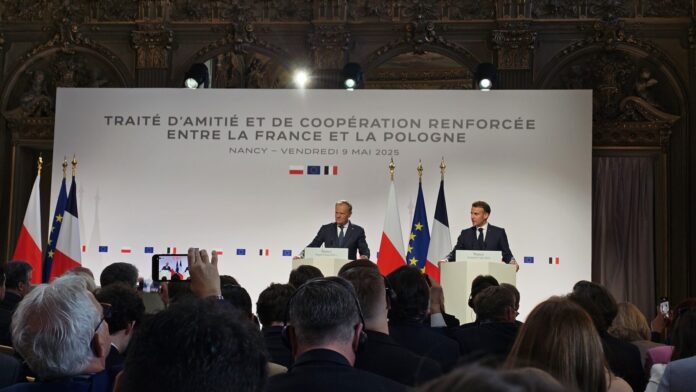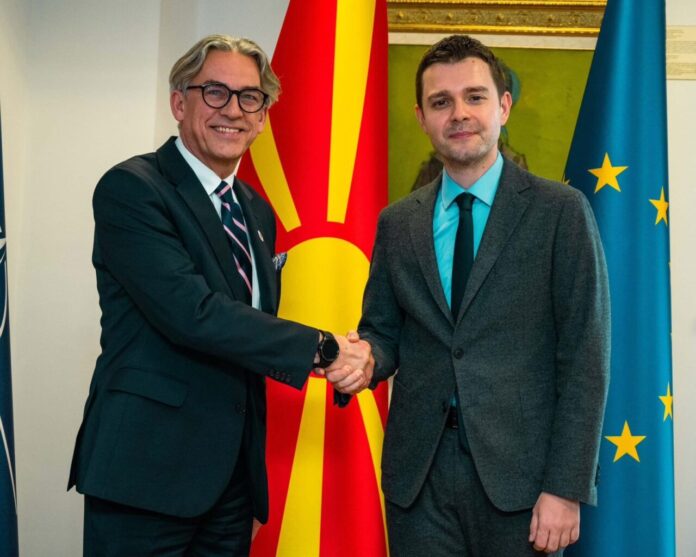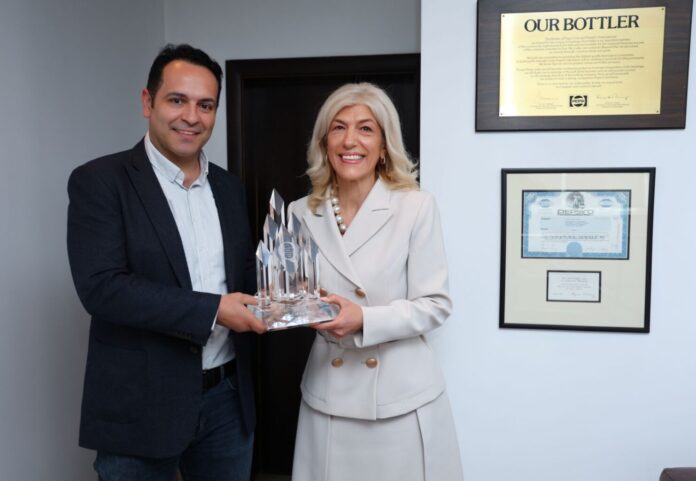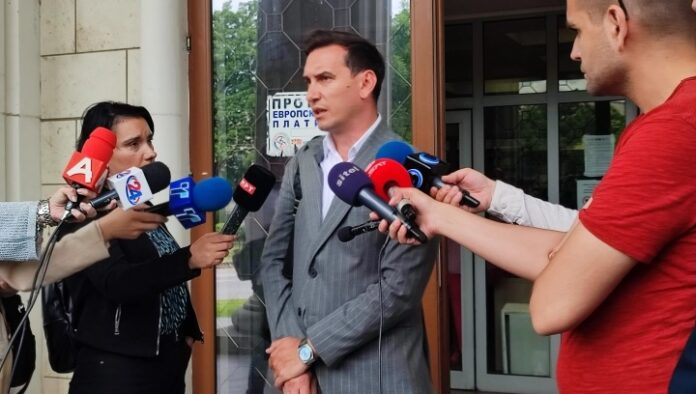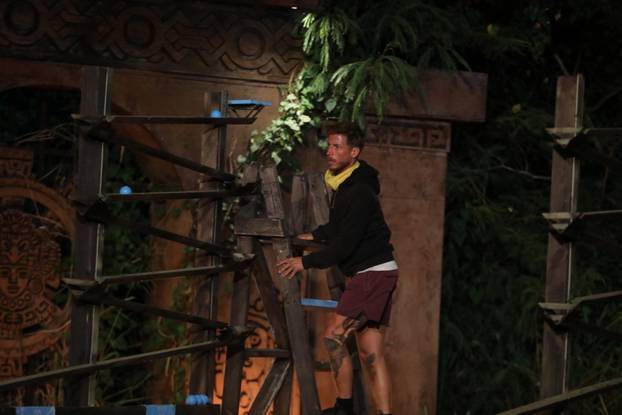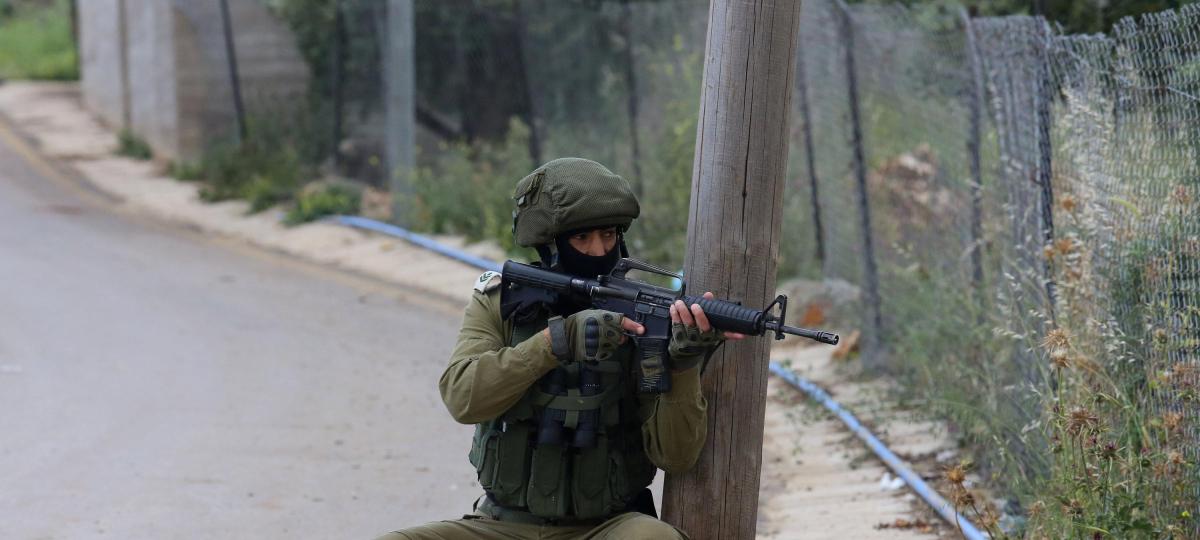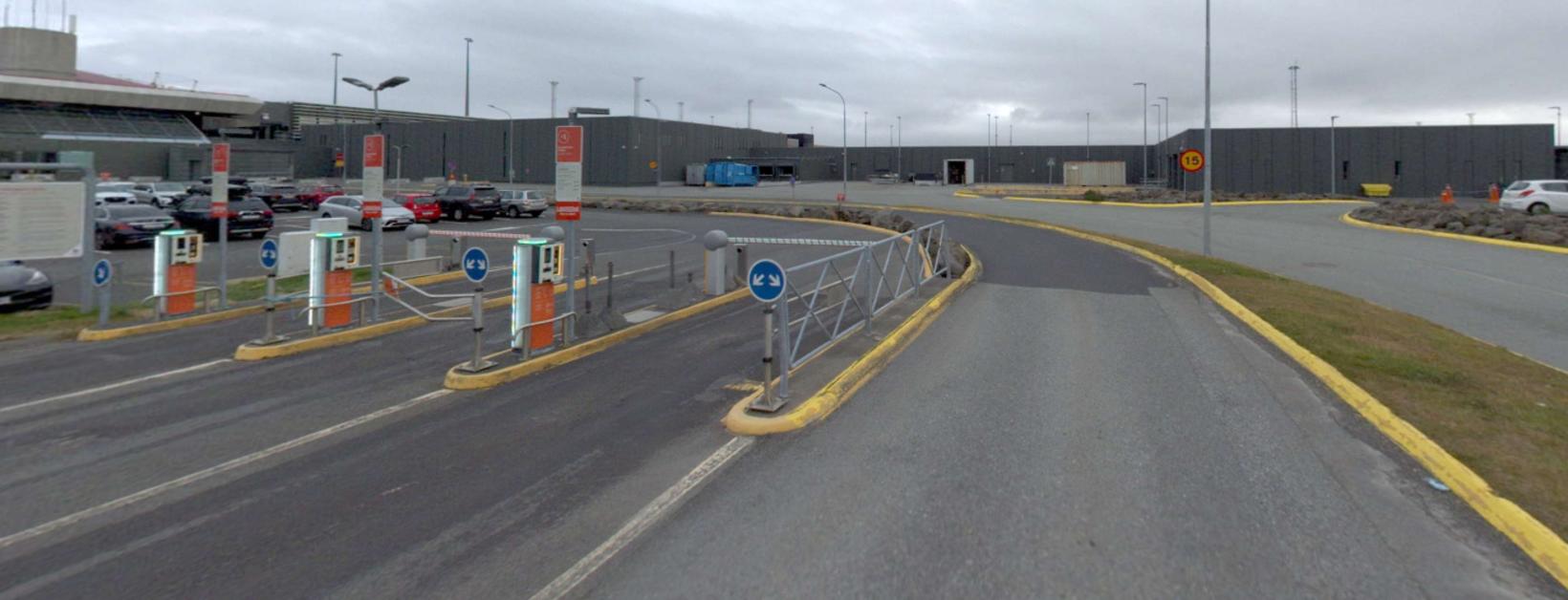Did Macron and Tusk seal the partnership against Russia
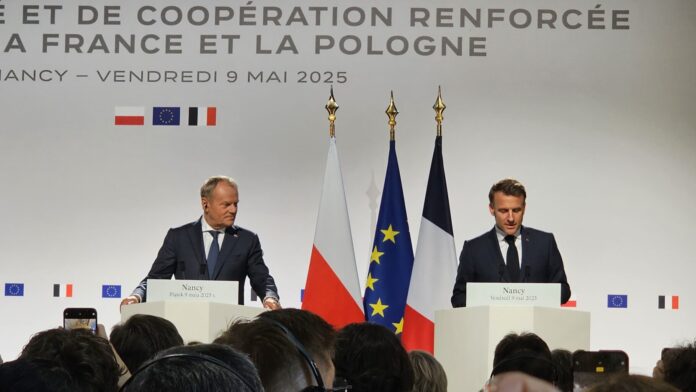
EU militarization tendency continues
Toni Glamcevski, Nancy Special Rapporteur for Nova Makedonija
Even before he was signed, he was already called the « Nancy agreement ». History, with great Х, should remember that right at the feet of Stanislav Leschinski’s statue, much of Europe’s strengthening will be set up. While the Russian military parade aims to celebrate the victory over Nazism 80 years ago, French President Emmanuel Macron and Polish Prime Minister Donald Tusk will engage this Friday afternoon for some « Friendship and Enhanced Cooperation Agreement », with Emphasis is put on military-security issues.
Never enemies, always allies: the French and Polish people, who have never fought each other, will finally sign a historic friendship agreement. And when it came to discovering his contours, nothing was left to chance.
May 9, Europe Day, was elected by Emmanuel Macron and Donald Tusk to seal their partnership. The meeting in the French city of Nancy, to improve the Franco-Polish cooperation, is also not unmobolic, as it was here in 1737 Stanislav Leschinski, the ousted King of Poland whose daughter was married to Louis XV. Namely, as a reminder, forced into exile from the Austrian and Russian military, he became a Duke of Lauren, leaving his own stamp in Nancy building Stanislas Square, which is considered one of the most beautiful squares in France and Europe. Two centuries later, tens of thousands of Poles will come to work in the mines, creating links with future generations and strengthening their presence among Lorenna’s population.
Three centuries later, the rapprochement between Paris and Warsaw gets an even greater echo because, at the same time, at a few thousand kilometers, Vladimir Putin welcomes several heads of state to Moscow, including Chinese President Si Jinping, who came to attend the traditional Russian Army, The fascist axis.
In a battle of narratives and alliances, the Franco-Polish tandem presents itself as a European guard, while the Kremlin, in the words of the Western Liberal Narrative, remains the « visible threat to the continent’s security », and according to the same European-liberal narrative, « American support is sporadic » …
France’s newer pieces with European states
So far, France has paraffed only three bilateral agreements of this caliber with European forces. By doing so, Poland joins the closed circle of Germany (1963 and 2019), Italy (2021) and Spain (2023), this will be the first obligation of its kind confirmed by a state that does not border France. It illustrates (allegedly, according to Paris) « European desire, outside the links that naturally unite EU members », to conclude patches among the main powers, with the threatening shadow of the conflict in Ukraine, and it is the only one that does not border France. This will specify the displacement of the geopolitical center of Europe’s gravity to the east, claimed by Emmanuel Macron during his speech in Bratislava on June 1, 2023. « We have not always heard enough this voice you worn, which called for recognition of your history and your painful memories.
This agreement aims to « raise the French-Polish partnership at high levels of ambition in strategic areas », the Elysee Palace said, « especially defense and energy ».
Paris has long wanted an update on the Warsaw Cooperation Framework
For the Elysee Palace, it was high time to update the framework for co -operation with Warsaw, a key partner, as « a Western Guarantor at the Eastern Border of the European Union and NATO ». The latest major text linking the two countries dates back to 1991 and emphasizes the need to support Poland in its accession to the European Union… Returning to power to the liberal -oriented Donald Tusk on the banks of Wisla at the end of 2023 allowed France to fully engage in the negotiations. Prior to that, traditionalists and sovereignty from the Law and Justice party moved away from the Neoliberal Line of Paris, which was confirmed by the cancellation of the contract for 50 French Karakal helicopters in 2016 for Poland.
« The Impulus is ongoing, » notes Arno Danjan, a former European MP and special adviser to international policy of former Prime Minister Michel Barnier. « To give this text essence in the coming months, » the expert for the region, who claims to have worked to become one of the cardinal points of the European Paris compass.
Holistic Franco-Polish Agreement
Although the deal is intended to be holistic, covering everything from economics to energy, culture and digital technology, given the context, the emphasis is on security issues. On paper, synergies are here: Poland, in the first line against Moscow, devotes 5% of its national defense wealth, which is a record within NATO, while France has the second largest arms export industry in the world. Warsaw is currently focusing on its military purchases on US and South Korean equipment. But Paris hopes this trend will be mitigated. The Elysee Palace highlights the compatibility of its 32-F-35 fuel aircraft and F-35 filling aircraft by 2030, the capacity of its industry to supply artillery ammunition and carefully monitors Polish Navy modernization projects. « Tusk visited the Netherlands two days before the signing of the Nancy agreement. » But the Dutch are buying French equipment to equip their Navy, « notes Marek Cvircinski, head of the International Security Department in Politika Insight.
European militarization rise?!
« France is a key partner for us, with whom we are already cooperating, » Vladislav Kosinjak-Kamish, Minister of Defense and Second Man in the Polish Government, assured Le Figaro. « On Tuesday, I opened the production of a new frigate, which includes French companies. » Our co -operation in the aviation sector is also very good, « the minister continued cautiously, saying it was » convinced that the procurement would continue in both directions « .
Warsaw is interested in seeing any additional security guarantees that would allow her to reduce dependence on Washington. « Building a close alliance with another nuclear power is important, » the expert said. Poland closely follows debates related to the expansion of « French nuclear deterrence » in other European countries. Although the Polish Defense Minister confirmed his « interest in the issue », potential forms of implementation remain unclear. The strategic community is scarably discussing the possible temporary deployment of Rafal fighter jets.
Hardline Weimar Triangle
Apart from the Franco-Polish alliance, Friedrich Mertz’s power in Germany, a passionate supporter of the « European revival », has fueled hopes. The new Chancellor was made by the Weimar Triangle – the format of collaboration between Paris, Berlin and Warsaw – a priority, which is clearly seen from his subsequent visits to the two capitals the day after taking office. God’s gift, according to « Figaro », because it was this triangle that made « a common front against Vladimir Putin, which would be vital ». (?!)
Macron unreasonably warnings says that « the pact between the two countries is part of the desire for a stronger, more independent and more convinced Europe, » the Elysee Palace confirmed.
Thus, the emphasis in Nancy will put the need to « continue the rapprochement of the ranks in Europe to predict a possible deterioration of the military situation ».
Obviously, the policy of European liberal elites has intensified towards the gravity towards militarization of major European countries, despite Washington, Beijing, and even Moscow…

